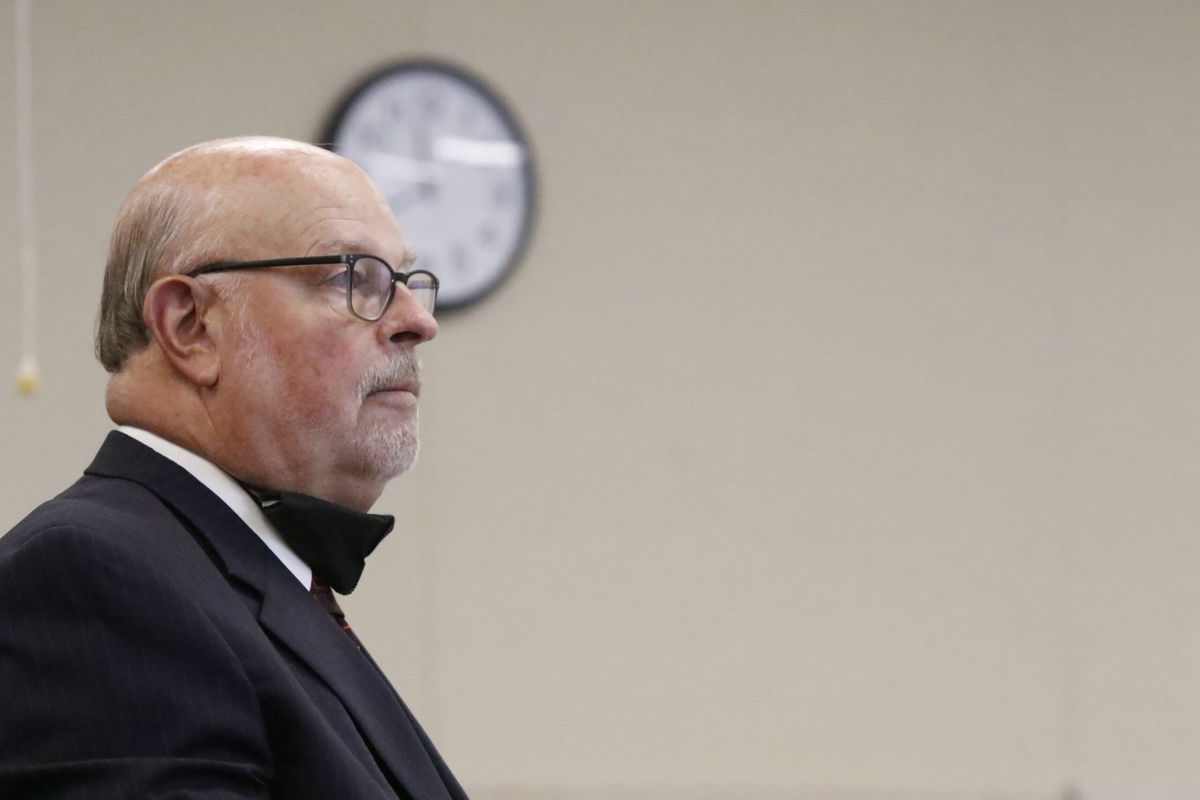Defense begins presenting its case in Kristin Smart murder trial

SALINAS, Calif. – The prosecution team in the high-profile Kristin Smart murder trial happening in a Salinas courtroom laid its case to rest on Tuesday after weeks of witness testimony, with the defense team beginning to present its case on Wednesday.
Paul Flores is accused of killing Smart, who was a 19-year-old Cal Poly student at the time of her disappearance in May 1996, because he was reportedly the last one to see her alive after an off-campus party that spring. Paul's father, Ruben Flores, is charged as an accessory to the crime.
The prosecution, led by San Luis Obispo County Deputy District Attorney Chris Peuvrelle, has been presenting its case since the trial started on July 19.
Defense Attorney Robert Sanger began on Wednesday by calling witness Dr. Davis Carter to the stand. Carter is the director of Forensic Sciences at the Chaminade University of Honolulu with an area of expertise in death investigation and how a body is decomposed.
His master's degree thesis and P.h.D. dissertations discussed the stages of body decomposition.
When Sanger asked about his time as an expert in decomposition, Carter said that he has done peer work, taught as a professor, and researched in the field.
Sanger showed Carter pictures of the excavation of Ruben Flores' home from March and April of 2021. The pictures were then shown to the public.
Carter said that he saw pictures, blood test reports, DNA tests, and transcripts of experts testifying prior to the hearing on Wednesday. He said that he didn't see "any data of human decomposition."
He said the reasons varied, but components expected to be found at a burial site could include skeletons, teeth, clothing, or hair – which Carter said could last thousands of years.
Sanger then asked about body fluids, odor, and microbial activity at the site, in which Carter explained that a decomposing body releases a certain fluid that has a substantial odor.
Peuvrelle then began his cross-examination, stating that Carter's research focused more on sheep and rat remains rather than humans during his time in graduate school.
Carter said that he never reached out to prosecutors directly about the evidence he analyzed, never went to the scene, and never went on his own for excavation.
Peuvrelle said that being at the scene in person would be the best vantage point to analyze the samples, and pointed out again that Carter never visited the site himself.
Peuvrelle then started questioning his research with the rat remains, and Carter mentioned that the experiment lasted somewhere between 28 and 42 days. He added that his longest study on in-person human decomposition lasted 12 years.
Sanger then continued asking Carter questions, asking if there was a difference between a body buried 30 minutes ago, versus days, weeks, or even months ago. Carter explained that research shows that it takes 48 hours for microbes to change after death, so not much decomposition would take place after just 30 minutes.
Carter was asked if someone would expect to see worms in a body that had been buried in soil for over 20 years, to which Carter didn't know. He was then excused from the stand.
Upon returning from lunch recess, Sanger placed two motions for a mistrial due to prosecutorial misconduct, which the court denied. Sanger requested another motion in support of defense evidence, but Judge Jennifer O'Keefe did not have the opportunity to look into it immediately.
Sanger then called Elizabeth Johnson, a forensic DNA consultant at a private practice, to the stand. He presented samples of a blood test used for the soil samples, and Johnson said that the test was not appropriately provided because there was no validation study on the soil samples.
The two then got into the PH levels of the sample, which can affect the accuracy of the tests. Johnson said that it is better to use buffer to neutralize PH instead of water.
After a short break, the judge called a juror and began asking questions as to why she was speaking to Carter. The juror said that she just talked to him about Hawaii. The juror was asked to leave the room, and the judge asked similar questions to Carter, with which he gave similar answers.
After the court finished shortly after 4 p.m., a juror told the court about a fellow juror being unprofessional and laughing at an attorney "unprofessionally." The judge asked the juror to refrain from those behaviors, and Sanger asked to have that juror removed. Peuvrelle asked the court to deny it, which it did.
The trial resumes at 10:30 a.m. on Thursday in Salinas.
